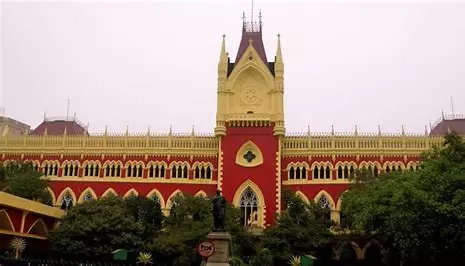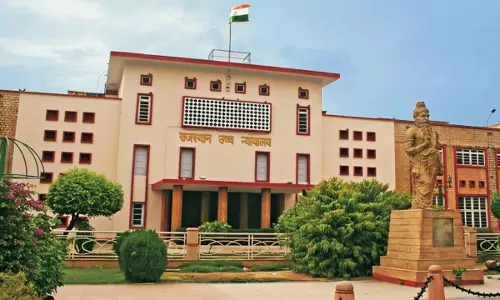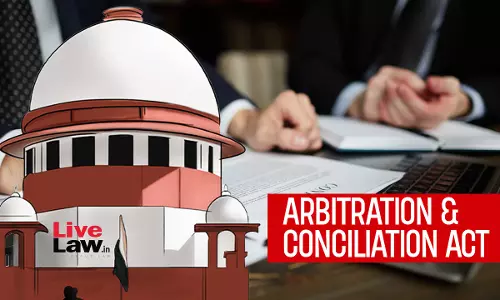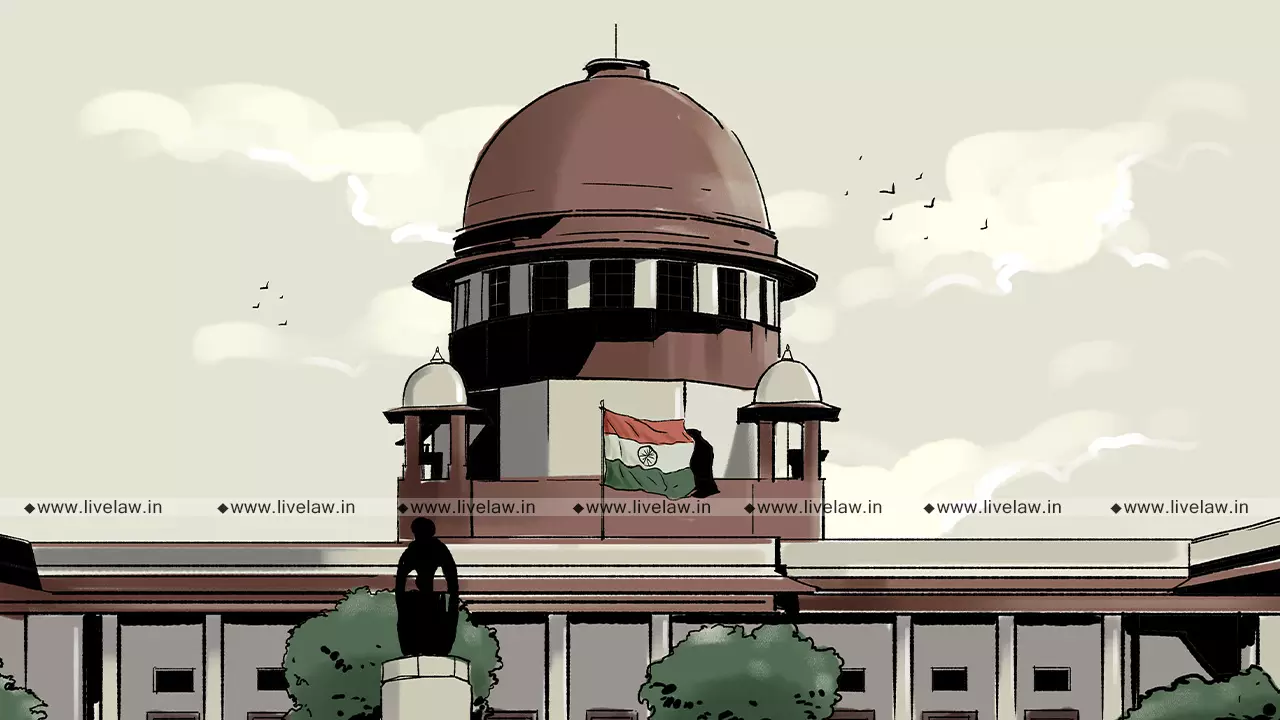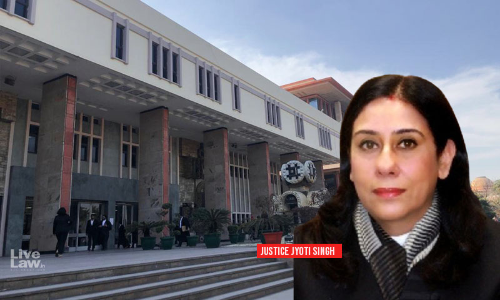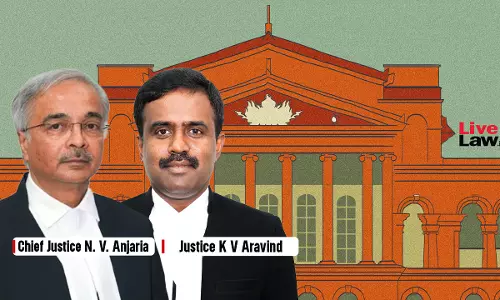Arbitration
Contempt Court Can Reverse Benefits Obtained From Disobeying Orders U/S 9 & 17 Of Arbitration Act: Delhi HC
The Delhi High Court bench of Justice Anish Dayal has held that the contempt court is empowered to issue directions to reverse any benefits obtained in disobedience of an order passed under Section 9 of the Arbitration and Conciliation Act, 1996 (Arbitration Act) to ensure that parties are restrained from violating the court's orders. In the present case, the Respondent...
S. 31(7) Arbitration | Arbitral Tribunal Has Power To Award Different Rates Of Interest For Pre-Reference & Pendente Lite Period : Supreme Court
The Supreme Court held that under the Arbitration and Conciliation Act, 1996, an Arbitral Tribunal has the power to award different rates of interest for different phases.A bench comprising Justices Abhay S. Oka and Ujjal Bhuyan overturned the Delhi High Court's ruling, which had invalidated the tribunal's grant of interest on interest, deeming it impermissible under Section 31(7) of...
[Arbitration] Initial Filing Without Essential Documents Non Est In Law, Limitation Can't Be Circumvented By Curing Defects: Delhi High Court
The Delhi High Court bench of Justice Purushaindra Kumar Kaurav has held that an initial filing made without the essential documents like attaching impugned award etc. required for adjudication is non est in law and has no legal existence. Such a filing, made merely to evade the limitation period under Section 34(3) of the Arbitration and Conciliation Act, 1996 (Arbitration Act) cannot...
'Non-Consideration Of SC Judgment Amounts To Patent Illegality': Calcutta High Court Sets Aside Award On Grounds Of Unilateral Appointment
The Calcutta High Court bench of Justice Shampa Sarkar has held that non-consideration of a judgment of the Supreme Court amounts to patent illegality, which is a valid ground for setting aside an arbitral award under Section 34 of the Arbitration and Conciliation Act, 1996 (Arbitration Act) particularly when the award is passed by an arbitrator unilaterally appointed by...
Arbitral Award Can't Be Set Aside Over Insufficient Stamping Without Opportunity To Cure Defect: Rajasthan High Court
The Rajasthan High Court bench of Justices Avneesh Jhingan and Bhuwan Goyal has held that when a court, in proceedings under Section 34 of the Arbitration and Conciliation Act, 1996 (Arbitration Act) finds that the agreement to sell, on which the arbitration was initiated, is insufficiently stamped, it must provide the party an opportunity to cure the defect by impounding...
Refund Of Liquidated Damages Imposed By Party Responsible For Delay In Work Can't Be Interfered With U/S 37 Of Arbitration Act: Rajasthan High Court
The Rajasthan High Court bench of Justices Avneesh Jhingan and Bhuwan Goyal has held that the imposition of liquidated damages by a party primarily responsible for the delay in completion of the work is unjustified. Therefore, the arbitrator's direction to refund such damages cannot be interfered with, given the limited scope of appellate intervention under Section 37 of the Arbitration...
Unfair To Presume That Plea Of Limitation Can't Be Adjudicated By Arbitrator, Court U/S 11 Must Not Conduct Roving Inquiry: Telangana High Court
The Telangana High Court bench of Justice K. Lakshman has held that in a scenario where the referral court can discern the frivolity of the dispute from the bare minimum pleadings, it would be incorrect to presume that the arbitral tribunal, equipped to undertake a detailed examination of the pleadings and evidence, would be unable to reach the same conclusion. Therefore, it is better...
Supreme Court Deprecates 'Deliberate, Ambiguous' Drafting Of Arbitration Clauses; Calls For Suo Motu Action In Malafide Cases
Delivering a significant judgment on arbitration law, the Supreme Court today deprecated the practice of arbitration clauses being deliberately phrased "ambiguously" by members of legal fraternity and urged judicial forums across the country to throw out cases involving "shoddily drafted arbitration clauses" at the threshold.The Court said that such "malafide cases" are a "criminal wastage...
Private Arbitration Clauses Cannot Override Statutory Mandates Under MSMED Act : Supreme Court
Reaffirming that the MSMED Act prevails over the Arbitration Act, as held in Gujarat State Civil Supplies v. Mahakali Foods, the Supreme Court set aside the Karnataka High Court's interference with MSMED proceedings in Delhi, despite the contract naming Bengaluru as the arbitration seat. The Court clarified that private contractual clauses cannot override the statutory mandate of the MSMED...
When Deciding Application For Appointment Of Arbitrator, Court Cannot Examine Whether Claim Is Barred By Res Judicata: Delhi High Court
The Delhi High Court Bench of Justice Jyoti Singh has observed that it is not open to the referral court in a petition filed under Section 11, Arbitration and Conciliation Act, 1996 (“ACA”) to examine the issue whether the claim is barred by res judicata. Such an examination falls within the domain of the Arbitral Tribunal. Facts The present petition had been...
No Objections U/S 47 Of CPC Can Be Moved By Judgment Debtor Against Execution Of Award U/S 36 Of A&C Act: Delhi High Court
The Delhi High Court Bench of Justice Jasmeet Singh has observed that a judgment debtor is not entitled to move objections under Section 47, CPC in an application for execution of award under Section 36, Arbitration and Conciliation Act, 1996 (“ACA”) as it would amount to effectively opening a second round for challenging the Award which would undermine the provision of section...
Once Parties Intend To Resolve Their Dispute By Arbitration, It Is Needless For Court To Decide Whether Partnership Was At Will: Karnataka HC
The Karnataka High Court bench of Chief Justice N. V. Anjaria and Justice K. V. Aravind has held that when both parties have agreed to resolve their disputes regarding the nature of the partnership through arbitration, it is unnecessary for the Court to determine whether the partnership is one "at will." Such issues are more appropriately left for adjudication by...



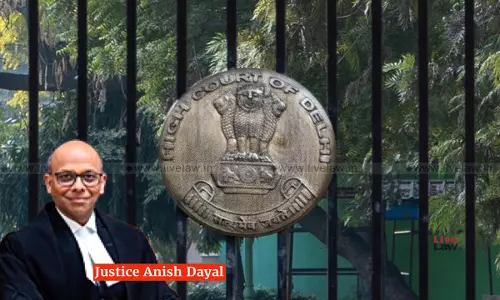
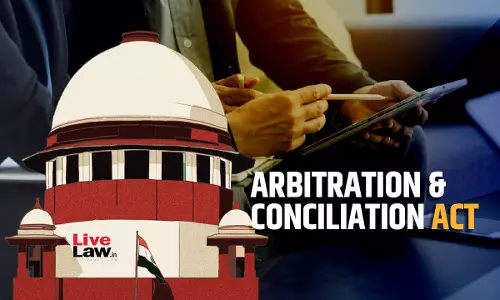
![[Arbitration] Initial Filing Without Essential Documents Non Est In Law, Limitation Cant Be Circumvented By Curing Defects: Delhi High Court [Arbitration] Initial Filing Without Essential Documents Non Est In Law, Limitation Cant Be Circumvented By Curing Defects: Delhi High Court](https://www-livelaw-in.demo.remotlog.com/h-upload/2025/05/06/500x300_598730-justice-purushaindra-kumar-kaurav.webp)
